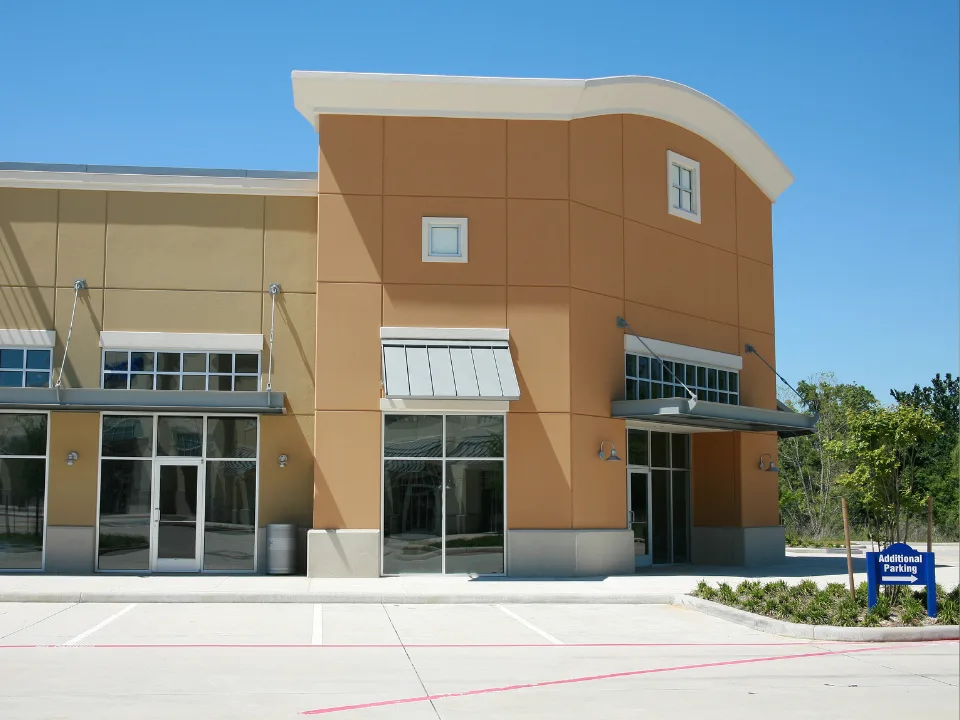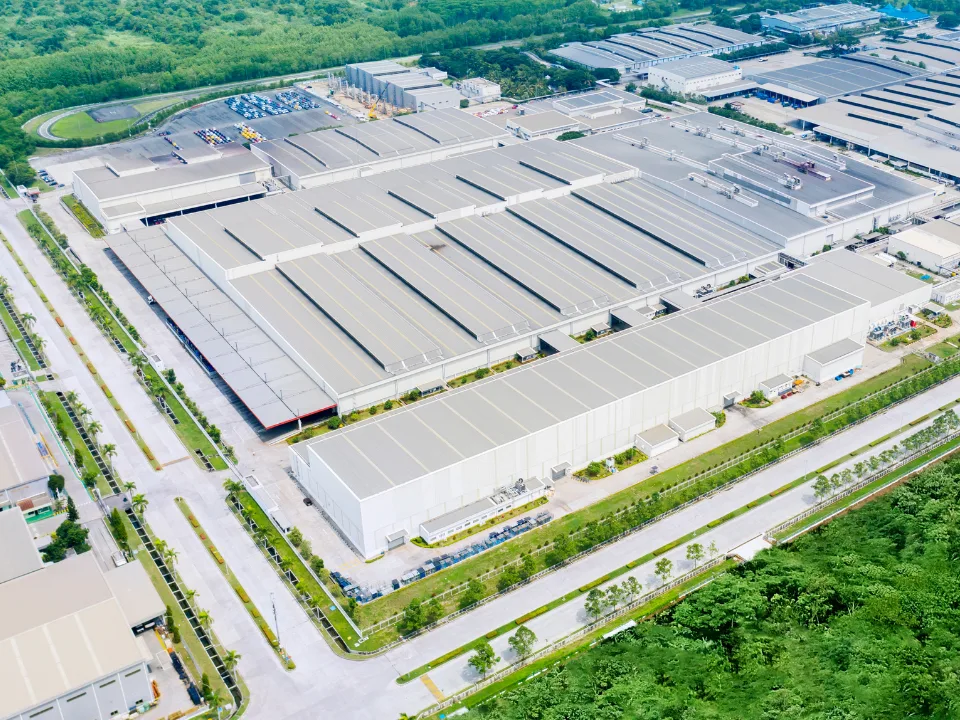Rising Star: Fort Worth’s Real Estate Boom
Fort Worth, TX, is emerging as a new CRE boomtown, with a total of $2.3B of projects under construction or in the pipeline, consisting of around 5K new apartments, office space, and mixed-use developments.
Together with
Good morning. As America’s fastest-growing major city, Fort Worth, Texas, is rapidly evolving into a burgeoning hub for commercial real estate. New York’s $7B Penn Station overhaul is ready to proceed without planned office towers. Meanwhile, Amazon Web Services (AWS) plans to invest another $7.8B in building data centers in Central Ohio.
Today’s edition is brought to you by Roots. Invest in a win-win real estate ecosystem that creates partners, not tenants
Market Snapshot
|
|
||||
|
|
*Data as of 6/27/2023 market close.
👋 First time reading? Sign up here.
BIGGER IN TEXAS
Boomtown Fort Worth Attracts Over $2B in New Projects

A $275 million mixed-use development known as Crescent Fort Worth is expected to open this year. PHOTO: OZ ARCHITECTURE AND ROTTET STUDIOS
Fort Worth, TX, is emerging as a new CRE boomtown, with a total of $2.3B of projects under construction or in the pipeline, consisting of around 5K new apartments, office space, and mixed-use developments.
The other half of DFW: While you might have seen better-known Dallas in the news time and again over the past few years, sister city Fort Worth has benefited mostly by proxy. Not anymore. As Dallas gets more and more expensive, Fort Worth looks more and more attractive. The ongoing growth surge in Fort Worth is due to the high number of people migrating from the coasts, drawn in by the Lone Star State’s lower cost of living, tax incentives, and business-friendly government.
Mixed-use offices in demand: John Goff, a Texas developer, is planning to open Crescent Fort Worth, a $275 M mixed-use development that includes luxury hotels, upscale rental apartments, and 168 KSF of office space. Most of the office space has already been leased at top-of-the-market rents by Satori Capital, Pegasus Resources, and Goff’s businesses in hospitality, finance, energy, and real estate.
Hub of research and innovation: Texas A&M University System started construction on the first of three buildings for a planned urban research campus in southeast downtown Fort Worth that intends to provide training and research facilities. Texas A&M is also in talks with Lockheed Martin over aerospace training and research facilities on the new campus. Public-private partnerships (P3s) are underway in engineering, medicine, and other fields to develop programs aligned with the new Fort Worth campus, expected to be completed by 2027.
If you build it, they will come: Notably, Charles Schwab has recently decided to move its HQ from San Fransisco to Dallas and Fort Worth. But it’s not the first big-name company to do so, nor will it be the last. Office space in downtown Fort Worth enjoyed 13% vacancy rates during the pandemic due in part to a traditional work and social culture in DFW in which many people still prefer to go into their offices for work. This puts developers in a unique position to build office spaces that employers and employees actually want to enjoy.
➥ THE TAKEAWAY
Challenges and opportunities: Fort Worth’s CRE boom isn’t without its challenges. New tenants find that the state’s power grid leaves much to be desired, especially during heat waves. Nonetheless, Fort Worth’s growth will continue to attract developers. The booming city presents significant opportunities for businesses and investors looking for a cheaper cost of living and tax incentives, with Fort Worth providing similar opportunities to other fast-growing Texas cities.
TOGETHER WITH ROOTS
Real Estate investing that does good
Imagine owning real estate where the people living in your property want it to succeed as much as you do. Rents would be paid more frequently, residents would stay longer, and returns would be higher.
Welcome to Roots, a private REIT that has revolutionized the tenant/landlord relationship thanks to their unique win-win fund structure:
-
You invest in Roots. Roots, buys and manages properties.
-
Residents of the fund’s properties get invested and are incentivized to pay rent on time and to take care of the property.
-
This tight partnership leads to better property care, fewer vacancies, lower turnover, and boosted returns.
-
The model is working 一 Investors have invested more than $13m and have seen the fund grow over 32% over the last 24 months.
Invest in the Roots Investment Community Fund today in 5 minutes, and grow your wealth while helping the residents grow theirs.
*This post contains sponsored advertising content. Past performance is not indicative of future results.
REBUILDING
New York’s Multibillion-Dollar Penn Station Overhaul Cuts Dependence on Offices

Source: New York Governor’s Office
New York’s Penn Station, the busiest transit hub in the U.S., will undergo a $7 billion renovation. The project, greenlit by Governor Kathy Hochul, will proceed regardless of funding from nearby office and commercial developments, reflecting shifting urban development trends due to variable workspace demand.
What happened: The $7 billion revamp and expansion of Penn Station was originally expected to be funded by contributions from high-end offices, retail, hotel, residential, and other developments. However, Vornado has paused any new development due to economic uncertainty and higher borrowing costs affecting market activity. The company’s CEO Steven Roth acknowledged that hybrid work patterns, higher interest rates, and economic concerns have slowed the expected return to office spaces.
Backtracking: The change in the funding plan aligns with New York’s increased office vacancy rate, reaching a record high of over 13%, with the sublet space also peaking. Even high-end offices are offering significant rent concessions to attract tenants. Governor Hochul still believes office development at Penn Station makes sense given the large commuter population, emphasizing future plans for housing development in the area.
Future projections and funding plans: State estimations suggest that introducing Metro-North Railroad service to Penn Station by 2027 will increase daily passenger trips by approximately 15% over the next two decades. New York state has already set aside $1.3 billion for Penn Station’s reconstruction, distinct from the future expansion. Additional funding for the renovation is expected from state and federal grant programs and other sources, allowing the renovation to proceed without immediate development proceeds.
Bigger and better than Grand Central: The renovation aims to transform Penn Station, currently an ‘eyesore,’ into a hub larger than the new Moynihan Train Hall and Grand Central Terminal combined. Metropolitan Transportation Authority CEO Janno Lieber revealed that this could be achieved by removing the underused upper-level taxiway. The overhaul can also proceed without removing the Hulu Theater, part of Madison Square Garden complex. Talks will soon begin with MSG to integrate the arena with the redesigned Penn Station.
Needed it done yesterday: Gov. Hochul has persistently pushed for a Penn Station redesign, emphasizing that it could be the “most important transportation infrastructure project in America.” The redesign process is already underway and multiple design ideas will be reviewed. Planners expect a flood of suggestions and criticism, but the Governor states that all concepts for improvements will be entertained.
➥ THE TAKEAWAY
Why it matters: The Penn Station overhaul reflects a broader urban development trend, where changing workspace demands due to the pandemic are reshaping funding strategies. By pivoting from commercial development funds to government grants, this project illustrates the resilience and adaptability of city planning in response to evolving market dynamics.
⏩ Forward this article by clicking here.
AROUND THE WEB
📖 Read: Two of Manhattan’s most famous hotels, the Four Seasons in Midtown and the Plaza Hotel, which have been closed for 3 years, are planning their post-pandemic comebacks.
🖥️ Watch: David Rubenstein, Carlyle Group co-founder, discusses market trends, the Fed’s rate hike campaign, CRE, and more on this episode of CNBC’s Squawk Box.
🎧 Listen: This episode of TRD’s Deconstruct features RXR Realty CEO Scott Rechler, who talks about the “Project Kodak” development, the current CRE downturn, and the outlook for the multifamily market.
DATA DRIVES DOLLARS
Amazon Invests Additional $7.8B to Boost Data Operations in Central Ohio

Amazon Web Services (AWS) plans to invest another $7.8B in building data centers in Central Ohio. The project, set for completion in 2029, further advances the state’s efforts to establish itself as the Midwest’s tech hub.
Job creation and economic impact: The project is expected to create 230 direct jobs and an additional 1,000 secondary ones, as stated by JobsOhio’s CEO & President JP Nauseef. This investment is considered the second-largest private investment in the state’s history, following Intel’s $20 billion semiconductor manufacturing plants in Licking County.
Potential location: While AWS has not officially confirmed the new data centers’ location, reports suggest that Amazon purchased 400 acres in New Albany, where AWS already operates another data center. This site is part of the New Albany International Business Park, a 9,000-acre business park aimed at boosting tech development in the region.
Ohio’s growing tech scene: Amazon first set foot in Ohio in 2015 with a data center in New Albany. Since then, the company’s investment in the state has exceeded $6 billion. The new expansion will more than double this amount, reinforcing the public-private collaboration and expanding workforce development and educational programs.
Growing AWS: Amazon has been scaling its AWS operations aggressively, committing $35 billion in Virginia earlier this year. AWS is one of Amazon’s most successful businesses, contributing 16% of total net sales in 2022. Despite economic slowdown and rising interest rates affecting the overall real estate sector, data centers have performed exceptionally well and are forecasted to continue their growth trajectory.
➥ THE TAKEAWAY
Big picture: Amazon’s continued investment in data centers in Ohio underscores the increasing relevance and growth of the tech and cloud computing sectors. The decision to invest in a state where they’ve previously seen success reflects a strategy of leveraging established relationships and infrastructures. This expansion not only solidifies Ohio’s status as a growing tech hub but also illustrates the sustained growth potential of the data center sector, despite broader economic challenges.
⏩ Forward this article by clicking here.
✍️ Daily Picks
-
Bellagio buyout: Blackstone (BX) is considering selling half its $4.25B Bellagio hotel stake, but no sale has yet been committed.
-
Prefab and affordable: D.C.-based prefab unit manufacturer Tomu has secured a $500K loan through Capital Bank to lease a new 15 KSF factory and start production.
-
Affordable Amazon living: Agorsor Equity, financed in part by Amazon’s Housing Equity Fund, will convert a downtown D.C. office building into 145 affordable residential units.
-
Renters beware: Housing search scams rose by 64% YoY in the U.S., resulting in $350M worth of losses last year, according to the FBI.
-
Loan of the day: Freddie Mac (FMCC) will issue a $947M loan to the Park La Brea apartment complex in LA. With 4K apartments, it’s the largest multifamily complex west of the Mississippi River.
-
Miami’s culinary revolution: Julia & Henry’s Food Hall opened in Miami and includes some of city’s most celebrated chefs, plus an entertainment center with live music and recording studios.
-
Building for business: Altabird Investments began building a manufacturing and warehouse facility in the tight industrial market of Portland, Oregon, called “Silicon Forest” by some.
-
Deal of the day: PacWest Bancorp (PACW) agreed to sell a $3.54B lender finance portfolio to asset manager Ares Management to improve liquidity and capital.
-
It ain’t worth that much: Chicago real estate firm R2 wants to buy a Michigan Ave. office tower for around $70M, 42% less than its sale price six years ago.
-
Foreigners need not apply: Florida passed a new law prohibiting immigrants from China, Cuba, Iran, North Korea, Russia, Syria, and Venezuela from buying any real estate in Florida near military installations or critical infrastructure.
-
NYC opportunity cost: Manhattan’s congestion pricing plan has been approved, with tolls ranging from $9–23 per day, generating $15B for the MTA, with a potential launch next summer.
-
Cashing it in: Blackstone sold a fully leased Hialeah Gardens cold storage facility for $4 M, with the deal breaking down to $374 per square foot.
📈 Chart of the Day

Vornado Realty Trust’s Steven Roth suggests that Fridays in the office are a thing of the past and Mondays are uncertain. However, the Wall Street Journal indicates that the firm is still banking on office work’s relevance, investing $1.2 billion to upgrade two office buildings near Penn Station.
Their prime selling point is their immediate access to transit, offering what Roth calls a “one-seat commute.” A graph from CBRE supports this strategy, highlighting transit proximity as the top amenity for occupiers, particularly for larger ones.
What did you think of today’s newsletter? |
HIT THE INBOX OF 65K+ CRE PROFESSIONALS
Advertise with CRE Daily to get your brand in front of the Who’s Who of commercial real estate. Subscribers are high-income decision makers, investors, and C-suite executives always looking for their next investment, product, or tool.


















